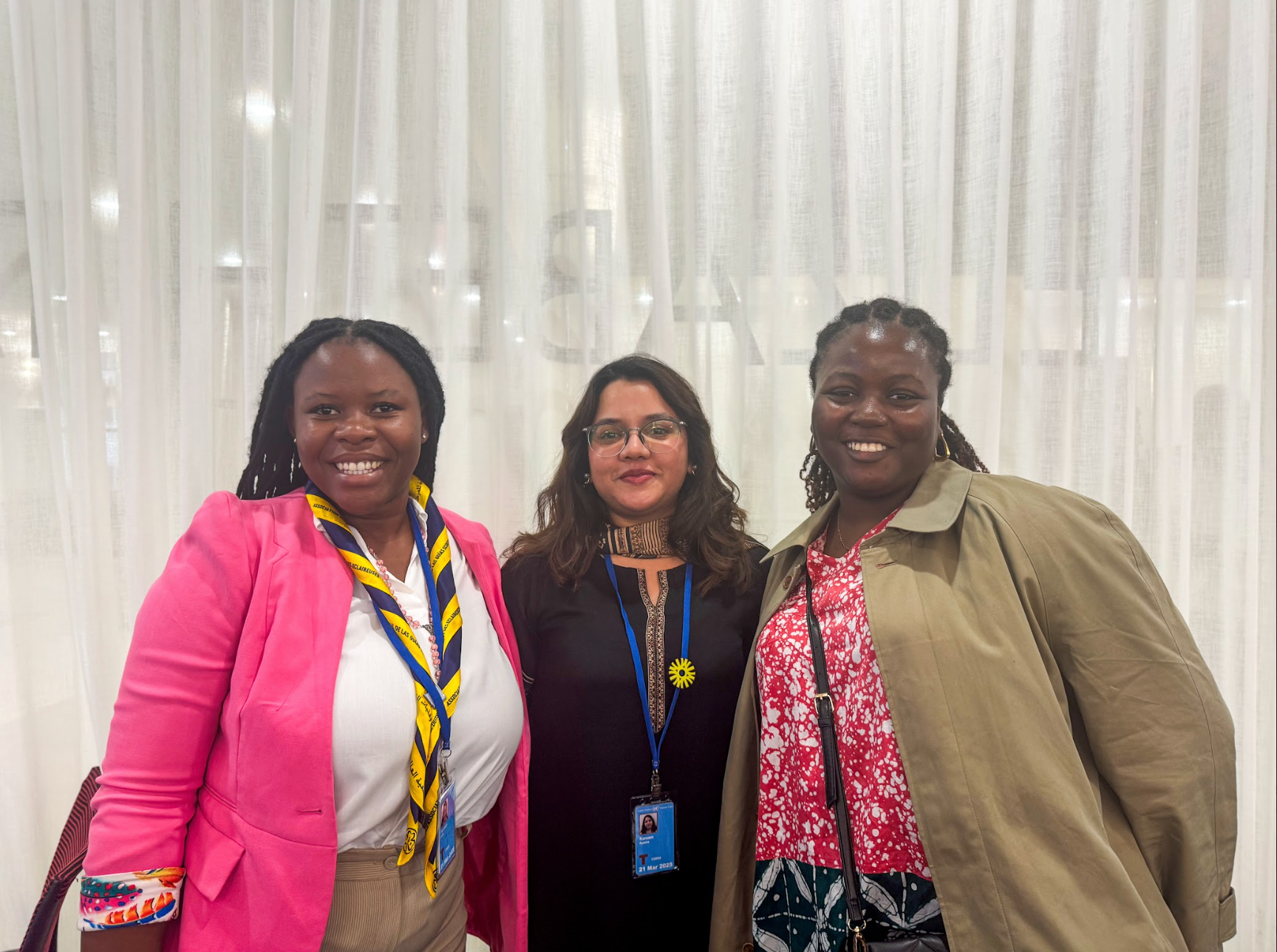
From our Girls’ Vision for Education report launch to Ziauddin Yousafzai’s discussion of male allyship, we centred girls’ voices and needs at CSW69.
Last week, girls and women from across the world gathered in New York City to make their voices heard at the 69th session of the Commission on the Status of Women (CSW69) at the U.N., the annual review of progress on girls and women’s rights. As girls and women’s rights are under attack around the world, this prominent platform provides an important opportunity to hear directly from girls about what they expect from global leaders to create more equitable and inclusive societies and what they need to complete their education and achieve their dreams.
To bring girls’ voices and insights to CSW69, Malala Fund launched the findings and recommendations from our Girls’ Vision for Education report for global decision-makers and supported our co-founder Ziauddin Yousafzai as he spoke out on the role of male allyship in accelerating gender equality.
Debt justice for girls workshop
On March 10, Malala Fund gathered a group of young women activists to discuss the findings of our Girls’ Vision for Education consultation and participate in a workshop around debt justice for girls. Working in small groups, each team had to allocate a certain amount of funding to public sectors of their choosing such as education or health. Halfway through the activity, workshop facilitators slashed their budgets by 50%, representing the large amount of debt repayments shouldered by lower-income countries in the real world. These countries, on average, are spending 43% of their budgets on servicing debts — almost three times as much as they spend on education. This activity forced girls to reevaluate their priorities and cut funding towards essential services.

Girls reflected on the harsh effects of debt burdens on education spending. Nyawira, a young activist from Kenya, explained: “This is a conversation girls are being left out of…for every 100 shillings being collected, 61 shillings [goes] towards paying debt. So that leaves 39 shillings to be divided across [areas like] education, health care, social security. And when you think about the hierarchy of needs, girls fall at the very bottom.”
Activists from Brazil, Chile, Nigeria and Rwanda shared stories about how girls in their countries unfairly bear the burden of their governments’ debt. These firsthand accounts, alongside insights and lived experiences of other girls around the world, will shape Malala Fund’s advocacy to achieve debt justice for girls in the coming year.
Girls’ Vision for Education report launch
On March 12, Malala Fund hosted an event to launch its Girls’ Vision for Education report, attended by girl activists and sector partners and featuring powerful closing words from Ziauddin.
The event kicked off with an introduction from our CEO Lena Alfi on the importance of listening to girls and learning from their stories. Two panel discussions focused on the key takeaways from the report: girls need access to adequate menstrual health resources and education access must be equitable and inclusive. Each of the panels featured women experts and activists from our grantee partner organisations who spoke about their experiences with and solutions to girls’ education barriers.

Susan Yumbe, Executive Director of Afyaplus, spoke about working with Tanzanian girls to advocate for proper sanitary products and sanitation resources in school: “[Girls] said that [the] availability of menstrual products at school will help them to improve their performance.” She also called on the international community to work towards a world where menstrual health does not prevent a girl from going to school.
Dr. Serkalem Girma, Co-founder of Roots & Wings ELIXIR, spoke about providing educational resources and support for deaf girls in Ethiopia: “Investment in education for girls with disabilities in Ethiopia is alarmingly low… In the six deaf schools we work in, none of the 10 subjects taught in secondary school are translated into sign language.” She drove home the message that even when girls can access education, schools must meet their diverse needs.
Ziauddin closed the event with this message: “What kind of education do girls want? The kind that makes them independent, [the kind] that empowers them.”
“To Kill a Tiger” film screening
On the evening of March 12, Ziauddin joined a panel discussion at a screening of “To Kill a Tiger”, a powerful documentary about Kiran and her father Ranjit’s unwavering pursuit of justice in the wake of sexual assault. Connecting to their story, Ziauddin spoke of his experience fighting alongside Malala for her right to education. Much like Ranjit, his decision to champion his daughter wasn’t even a question — they made this pledge the moment they became fathers. For Ziauddin, allyship means boys and men actively taking a stand and challenging the social norms and systemic barriers that prevent girls from learning and shaping their own futures.
Malala Fund’s week at CSW69 brought us hope and inspiration as we continue to work for a more equitable world. We heard directly from girls about what they need for their education, from partners about the challenges they’re tackling in their communities and from allies like Ziauddin on how we can help deliver on girls’ needs. While CSW69 comes to a close, Malala Fund will integrate the lessons from this week as we continue to advocate for girls’ right to education.
